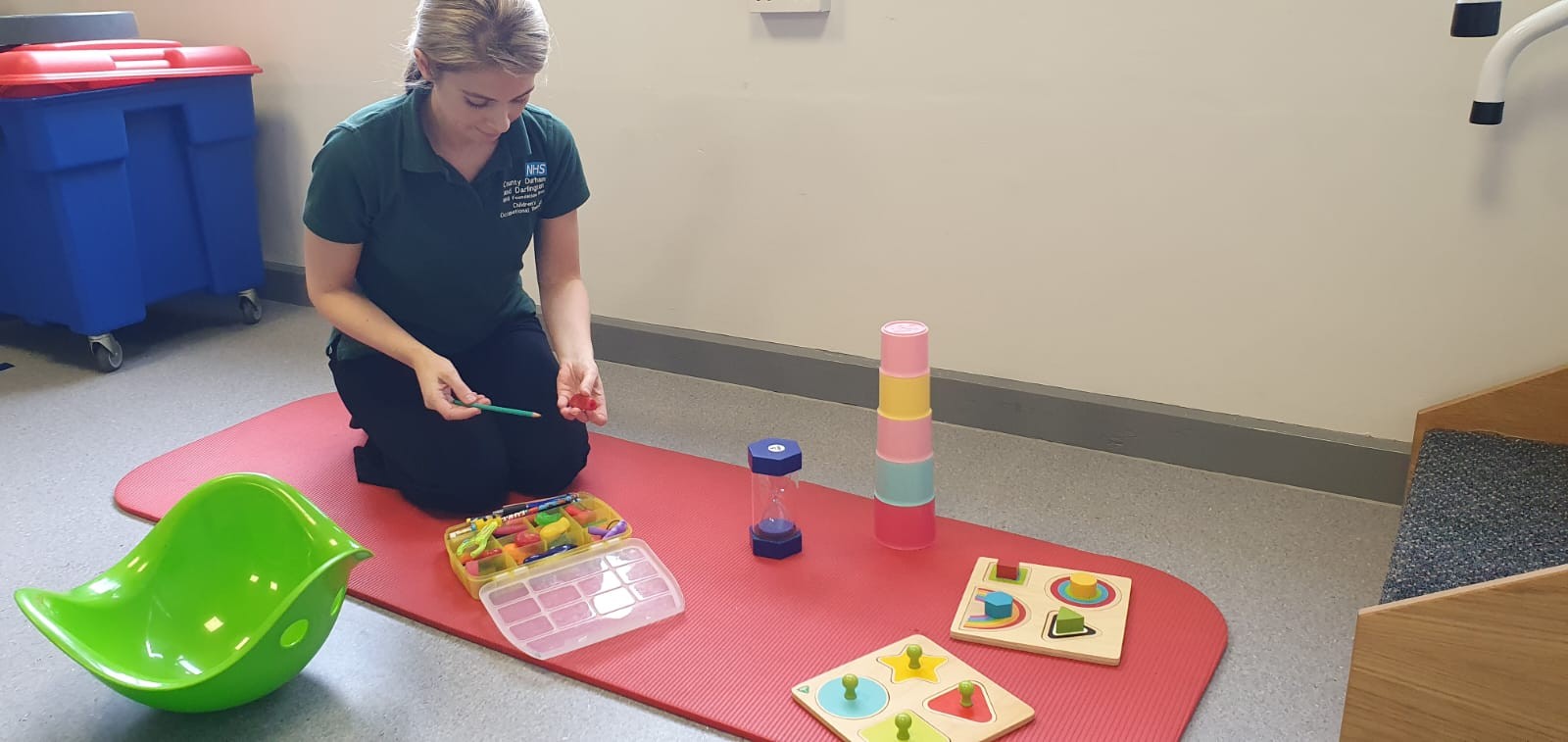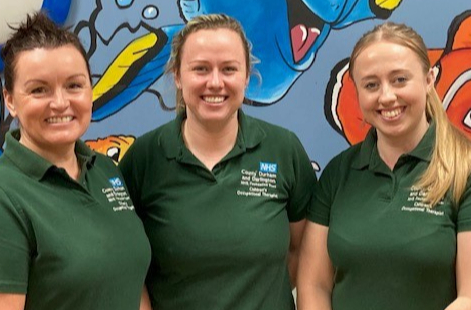About our service
Our Children’s Occupational Therapy team work with children and young people from birth up to 18 years old (and to the term before their 19th birthday if in specialist full-time education) who have difficulties or a disability which affects their ability to carry out everyday tasks.
Our Occupational Therapists (OTs) help and support children and young people to carry out the things they need or want to do in a wide range of areas like self-care, school work or play. If a child or young person has learning, sensory or physical difficulties, their ability to grow, learn, socialise and play can be affected.
Our passionate and dedicated team is made up of qualified Occupational Therapists, Occupational Therapy Assistants and Therapy Assistant Practitioners working across County Durham and Darlington. All qualified OT's are registered with the Health and Care Professions Council (HCPC) and have the required enhanced DBS checks.
Our services
Drop-in sessions are designed to offer education staff the opportunity to speak to an Occupational Therapist on an informal basis and get practical, easy to use advice. These sessions are specifically intended for children and young people who are not already known to the Occupational Therapy service.
Our Occupational Therapists will assess for and recommend certain items of equipment to help your child be more independent and successful in their daily lives. The aim is to promote your child’s health and wellbeing by enabling them to maintain a good position throughout their day. Further details on the assessment and provision of specialist equipment.
We offer Sensory Smart Classrooms, working with professionals to increase their awareness of:
- The sensory systems
- How sensory processing differences can affect a child or young person
- How under and over sensory responses challenge a child or young person
- Advice & strategies to incorporate into the school/nursery environment
- Know what to do next and when to refer
The requirement for this training involves all attendees to watch a pre-requisite training video and virtual (Microsoft Teams) attendance to a strategies and advice session with an OT. We encourage all professionals interested in SSC to contact the OT admin office.
A child's ability to take part in everyday activities such as eating meals, self-care activities, managing dressing fastenings, classroom tasks such as drawing and writing or playing in sports are all achieved through a good foundation in the sensory systems. SSF aims to work with parents and carers to help them to understand, recognise and know how to support and meet their child's everyday sensory needs. SSF forms part of the Children's Occupational Therapy intervention package and is only available when recommended by an Occupational Therapist. There are three sessions:
- Session 1 - An introduction to the sensory systems and the reasons why children may be experiencing sensory difficulties.
- Session 2 - An interactive session where case studies are used to help identify how sensory differences can impact on a child or young person.
- Session 3 - Is a practical and interactive session that discusses activities and useful strategies for helping a child/young person develop their sensory skills. Strategies are considered and parents/carers can have the opportunity to think about how to put these strategies into place at home every day.
How to access our services
We see children and young people within a variety of settings, including nurseries, schools, special schools and their home. Following a referral into our service, we will provide different levels of intervention dependent on need. This may be one of the following:
Verbal advice provided during a telephone conversation, with signposting to relevant information and services.
Initial strategies and advice will be given over the telephone or where appropriate either an Occupational Therapist or OT Assistant will be allocated to the child to make contact with the parent or the school to initiate intervention at home or school.
The Occupational Therapist will identify the need for a more detailed assessment and will provide specialist therapeutic intervention where necessary.
Making a referral
We have an open referral system which means that anyone who knows or works with a child or young person registered with a GP or living within County Durham and Darlington can refer to our service. This includes parents, carers, teachers, other health professionals, consultants and GPs. We do ask that if a professional is referring, they obtain consent from the parent or carer before the referral is sent.
To refer to our service, please call the central helpdesk on: 0191 387 6359 or download and complete a referral form and email it to: cdda-tr.


